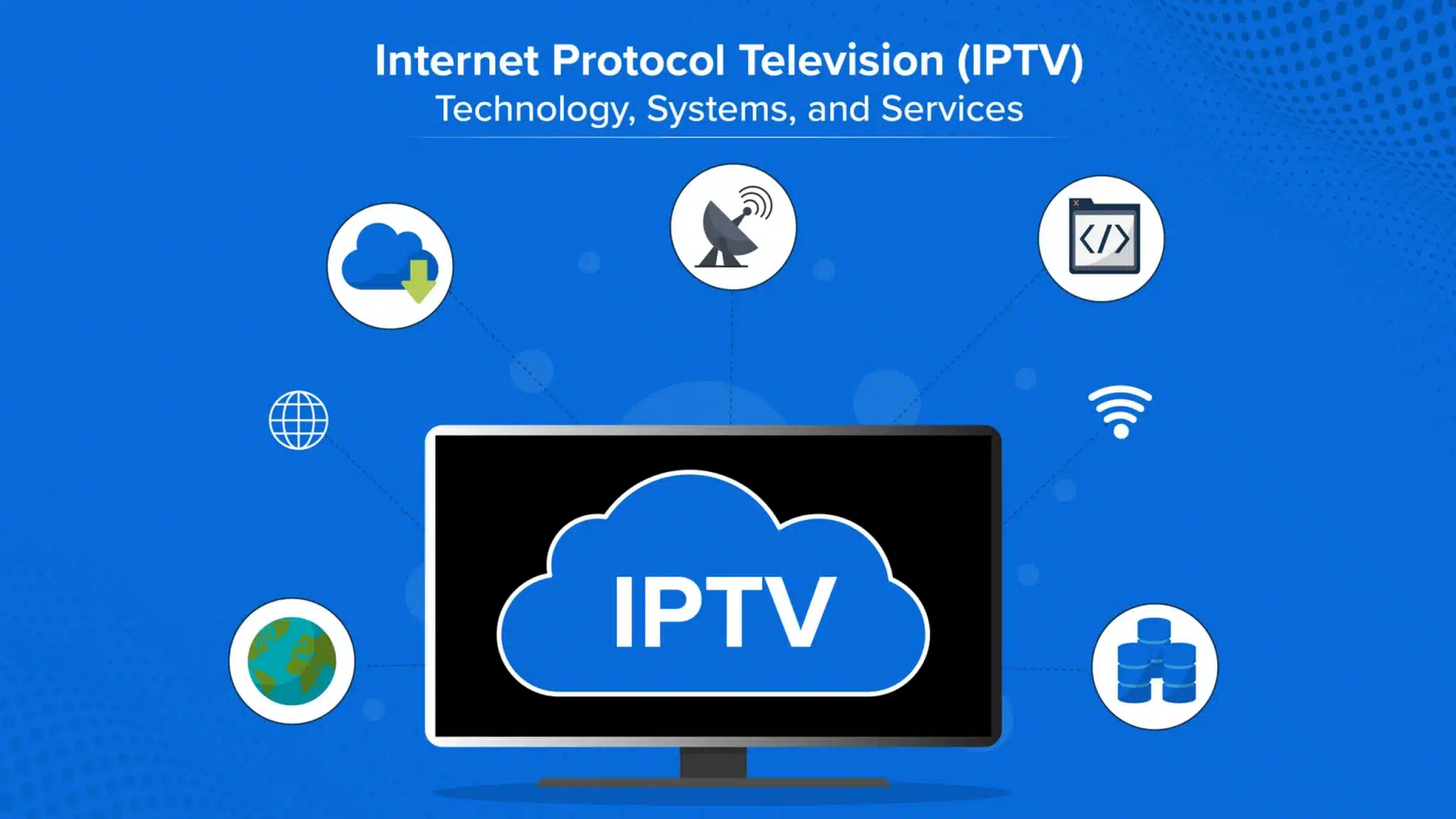Internet Protocol Television (IPTV): Transforming TV Today
In recent years, the way we consume television has dramatically evolved. Internet Protocol Television (IPTV) leads this transformation. IPTV delivers TV content through internet protocol networks instead of traditional satellite or cable methods. This shift offers viewers more flexibility, personalization, and on-demand control.
Qu'est-ce que l'IPTV ?
IPTV stands for Internet Protocol Television. It uses internet connections to deliver TV content, unlike cable or satellite broadcasts. The same internet connection that powers devices like smartphones and smart TVs streams high-definition video content directly to your screen.
Learn more about IPTV on Wikipedia.
Key Features of IPTV
-
On-Demand Content: IPTV allows viewers to access a wide range of movies, TV shows, sports events, and documentaries at any time. This gives viewers unprecedented control over their entertainment.
-
Diffusion en continu de haute qualité: IPTV supports high-definition and even 4K video quality. A good internet connection enables users to enjoy crystal-clear images and superior audio, often surpassing traditional cable.
For more about the tech behind streaming, check out Streaming Media Magazine.
-
Interactive TV: IPTV provides more interactivity than traditional TV. Users can pause, rewind, fast forward, and even watch multiple channels at once. Some services offer additional features, such as electronic program guides (EPGs).
-
Personalization: IPTV systems let users customize their viewing experience. You can create personalized channel lists, receive content recommendations, and track your viewing history.
-
Multi-Device Access: IPTV isn’t limited to the TV set. You can stream content to smartphones, tablets, laptops, and smart TVs, allowing flexibility to watch anywhere, anytime.
Read more about device compatibility on TechRadar.
How IPTV Works
IPTV works by transmitting television signals over the internet. When a viewer selects a program, the request goes to the IPTV server. The server sends video content through data packets to the user’s device, which decodes and displays it. This process ensures smooth and efficient delivery of high-quality content.
For an in-depth guide on how IPTV technology works, visit HowStuffWorks.
Types of IPTV Services
-
Live TV: IPTV allows viewers to watch programs in real-time, just like traditional TV. This includes sports, news, and other live content.
-
Video on Demand (VOD): IPTV offers an extensive library of movies, TV shows, and documentaries that viewers can watch at any time.
Learn more about VOD on TechCrunch.
-
Time-Shifted TV: This feature allows viewers to watch programs after they’ve aired. It offers the ability to pause and rewind live TV.
Benefits of IPTV
-
Cost-Effectiveness: IPTV can be more affordable than cable or satellite TV, especially when bundled with internet services. Users no longer need expensive satellite equipment.
-
Flexibility and Convenience: IPTV allows viewers to watch content whenever and wherever they want, providing a more user-friendly experience.
-
Wide Range of Content: IPTV provides access to international channels and niche content, ensuring something for everyone.
-
Advanced Features: IPTV offers features like multi-screen views, pause, rewind, and interactive services, enhancing the viewing experience.
Challenges and Considerations
While IPTV offers many benefits, some challenges exist:
-
Internet Speed and Bandwidth: High-quality IPTV streaming needs a fast and stable internet connection. Slow connections may lead to buffering or reduced video quality. Learn about internet speed requirements on Speedtest by Ookla.
-
Service Availability: IPTV services may not be available everywhere, and some regions may have restrictions on IPTV content.
-
Compatibility: Some devices may not support IPTV, so it’s essential to ensure compatibility. For more details, visit CNET’s Device Compatibility Guide.
-
Legal Concerns: Some IPTV services offer illegal streams of content. It’s important to subscribe to legitimate providers to avoid legal issues.
Learn more about IPTV licensing and legal issues on Variety.
The Future of IPTV
The future of IPTV looks bright. As internet speeds improve, IPTV’s popularity will grow. Innovations in AI and machine learning may enhance recommendations and interactive features. With 5G technology, IPTV could soon deliver higher-quality streaming and more immersive experiences.
As IPTV continues to evolve, it will play a key role in shaping the future of television. Whether watching live sports, catching up on TV shows, or exploring on-demand libraries, IPTV offers an experience that is convenient, flexible, and personalized.
Autres sujets liés à cet article :
Understanding IPTV and Its Impact


Laisser un commentaire